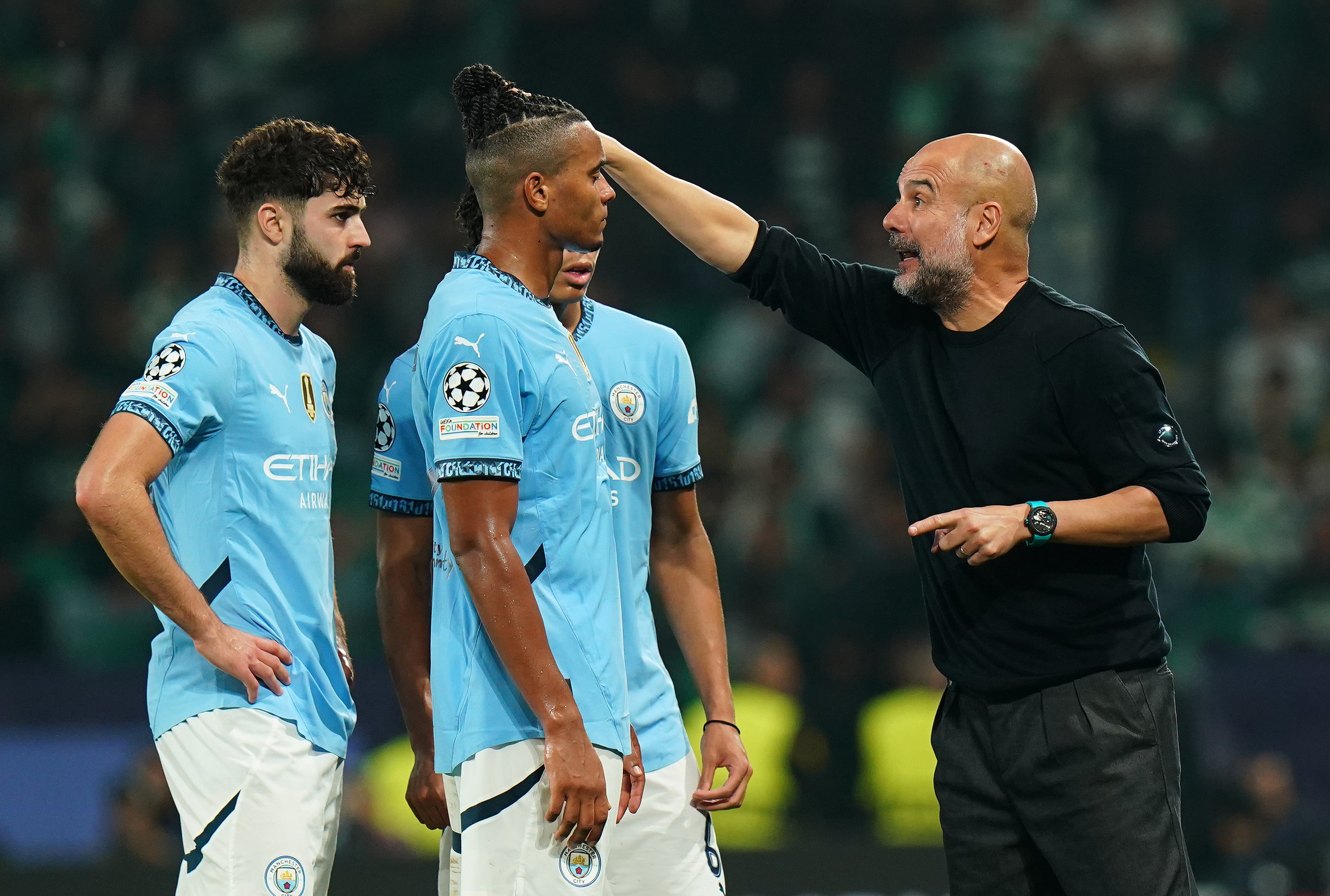Managerial godfather Pep Guardiola is about to accept his greatest challenge yet at Man City
The Premier League champions need a rebuild and their masterful manager is set to stay to oversee it after agreeing a new one-year contract, writes Richard Jolly


It could seem a rare vote of confidence when a club on a record losing run gives a manager a new contract. Then again, when the manager is Pep Guardiola, his longest sequence of defeats only stands at four; so does his unique chain of English league titles.
So if it is a vote of confidence, it is by Guardiola in Manchester City and not vice versa. There were reasons for the manager to walk away; some would say, 115 of them. Guardiola’s decision to commit himself to the club for a further year, until 2026, and, with a one-season option on top of that, seems to reflect a belief that City will emerge completely or relatively unscathed from the hearing into the Premier League’s century of charges.
Guardiola has tended to be bullishly outspoken in the club’s defence, even though he is not in the dock personally and most of the alleged offences predate his arrival. Guardiola said in September the rest of football wanted City to “disappear off the face of the earth”. A new deal nevertheless indicates he does not expect next autumn’s fixture list to contain Plymouth and Preston, let alone Braintree and Boston.
And Guardiola may have gone above and beyond the call of duty. His close friend and ally, director of football Txiki Begiristain, will step down in the summer. Guardiola has felt as settled in Manchester in part because of the Barcelona alumni Ferran Soriano and Begiristain, who have comprised his ideal support structure. By committing to working with Hugo Viana, the incoming sporting director, Guardiola could spare City their equivalent of Manchester United’s 2013 decline, when Sir Alex Ferguson and David Gill departed in the same summer.
He had reasons to go, stretching beyond the defeats to Tottenham and Sporting, Bournemouth and Brighton that suggested this may be a rare troubled campaign. Last May, after winning the title, he said he was nearer the end at City than the start, only to appear refreshed when he returned this season. There have been two chances to walk away on a historic high: in 2023, with the glow of the treble and after ending City’s long quest to win the Champions League; and in 2024, after becoming the only team in English history to be champions in four successive seasons. He has carried on each time.
Guardiola’s longevity can be attributed to an addiction to winning; one motivation may be to secure his fourth Champions League as a manager. Yet it is also notable the aesthete has turned into the competitor. In hindsight, there was a clue about his future after the Brighton defeat when he said: “I love a challenge. I won’t step back. More than ever, I want to do it.”
And City presents a challenge. Guardiola has arguably constructed two great teams at the Etihad Stadium, the first procuring 100 points in 2017-18 and 98, plus an FA Cup, the following season, the latter peaking with the treble. There were common denominators between the two but they conform to Ferguson’s theory that a team has a four-year cycle. It is a moot point if Ferguson had three or four outstanding sides at Old Trafford, the class of 2003 ranking below those of 1994, 1999 and 2008. Arsene Wenger built two at Arsenal, but few managers have more than one. Jurgen Klopp spent much of last season talking about “Liverpool 2.0”; under Arne Slot, they may have displaced City as title favourites. For Guardiola, having outlasted his greatest rival, there will be the task of shaping City 3.0.

Because this autumn has underlined that City are an ageing team. Guardiola may have to plot a future beyond Kevin De Bruyne and Ilkay Gundogan and Kyle Walker, perhaps, in time, without Bernardo Silva and John Stones. Guardiola has been the constant and the chameleon, prizing passing and possession but now with a side featuring a battalion of tall defenders and a giant predator in attack.
He has had a series of assistants, to the extent that two, Mikel Arteta and Enzo Maresca, now manage two of City’s rivals. While he came to Manchester in the same summer as Jose Mourinho, Ruben Amorim will be the fifth United manager he has faced, and Guardiola’s new deal underlines how fanciful the suggestions were that United had got one over on their neighbours by appointing the Portuguese.
And if it is thought that Guardiola is intrigued by the possibility of managing England, international football could be on the horizon. City is still in the foreground for Guardiola. He is the exotic import who has become part of the scenery. He is already the longest-serving manager in the Premier League (and in the top four divisions, given that Simon Weaver’s time at Harrogate began with them in non-league).
He is set to bring up a decade at City; a contrast for fans of a certain vintage, who will remember a decade in which they were managed by Billy McNeill, Jimmy Frizzell, Mel Machin, Howard Kendall, Peter Reid, Brian Horton, Alan Ball, Steve Coppell, Frank Clark and the caretakers Tony Book, Asa Hartford and Phil Neal. And as City circled through managers in the 1990s and Ferguson became the managerial godfather, now that mantle rests with Guardiola.



Join our commenting forum
Join thought-provoking conversations, follow other Independent readers and see their replies
Comments